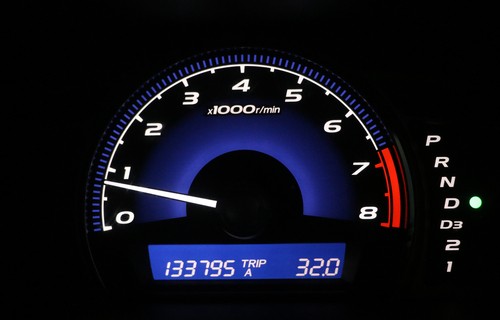All About Numbers
By accepting you will be accessing a service provided by a third-party external to https://www.allaboutnumbers.com/
2016 IRS Mileage Rates Down from 2015
New mileage rates went into effect Jan. 1 and they are lower than the 2015 rates. The Internal Revenue Service's "optional standard mileage rates"are used to calculate the deductible costs of operating an automobile for business, charitable, medical or moving purposes.
The 2016 standard mileage rates for the use of a car, van, pickup or panel trucks are:
- 54 cents per mile for business miles driven (down from 57.5 cents in 2015)
- 19 cents per mile driven for medical or moving purposes (down from 23 cents in 2015)
- 14 cents per mile driven in service of charitable organizations (no change)
The business mileage rate decreased 3.5 cents per mile and the medical and moving expense rates decreased 4 cents per mile from the 2015 rates.
The standard mileage rate for business is based on an annual study of the fixed and variable costs of operating an automobile. The rate for medical and moving purposes is based on the variable costs. The charitable rate is set by statute and has been 14 cents for more than 15 years.
The drop in rates is not surprising considering that fuel costs make up a substantial part of operating costs for a vehicle and gasoline prices are at a six-year low. Gas prices dropped throughout most of 2015, when the costs study was conducted.
Standard Mileage Versus Actual Expenses
The standard mileage rate is an optional method of claiming a tax deduction for the costs of operating a vehicle. Rather than use the standard mileage rate, taxpayers can keep track of the actual expenses of operating a vehicle, such as the cost of gasoline, repairs and other maintenance.
With the extension of the bonus depreciation though 2019, using the actual expense method may be a worthwhile consideration in the first year a vehicle is in service. The bonus depreciation allowance adds an additional $8,000 to the maximum first year depreciation deduction of passenger vehicles and light trucks that have an unloaded gross vehicle weight of 6,000 pounds or less.
Many of today's SUV vehicles weigh more than 6,000 pounds and are therefore not subject to the luxury auto depreciation limit rules, so taxpayers with these vehicles can use both the Section 179 expense deduction (up to a maximum of $25,000) and the bonus depreciation to produce a sizable first-year tax deduction. However, the vehicle cannot exceed a gross unloaded vehicle weight of 14,000 pounds.
A taxpayer may not use the business standard mileage rate for a vehicle after using any depreciation method under the Modified Accelerated Cost Recovery System (MACRS) or after claiming a Section 179 deduction for that vehicle. In addition, the business standard mileage rate cannot be used for more than four vehicles used simultaneously.
Keep in mind that business autos are considered five-year class life property. If a taxpayer disposes of the vehicle before the end of the five-year period, a portion of the Section 179 expense deduction must be added back to income. Therefore, the future ramifications of deducting all or a significant portion of the vehicle's cost using Section 179 should be considered.
Employee Reimbursement
For employers who reimburse their employees for business-related car expenses using the standard mileage rate, the reimbursement is tax-free if the employee provides the time, place, mileage and purpose of the business travel.
Employees whose actual employment-related business mileage expenses exceed their employers' reimbursement can deduct the difference on their income tax return. However, an employee who leases an auto and is reimbursed using the mileage allowance method can't claim a deduction based on actual expenses unless he does so consistently beginning with the first business use of the auto.
Record Keeping Required No Matter What
The IRS requires taxpayers who deduct actual expenses to maintain records and documentation of those expenses. This can be a time consuming chore, which is why most small business owners and the self employed use the standard mileage rate.
However, even if they choose the easier standard mileage rate, taxpayers still must keep track of the actual miles they drive and be able to document the purpose for the miles.
If you have questions about the best way to deduct the business use of your vehicle, give us a call at (209) 955-2244, or e-mail us at .
Related Posts
Access your Client Portal
Stockton, CA 95219
(209) 955-2244
Hours of Operation
Tax Season Hours
Jan 15 thru April 15
Monday – Saturday, 8am-8pm
Regular Hours
Monday – Thursday, 8:30am-5pm


